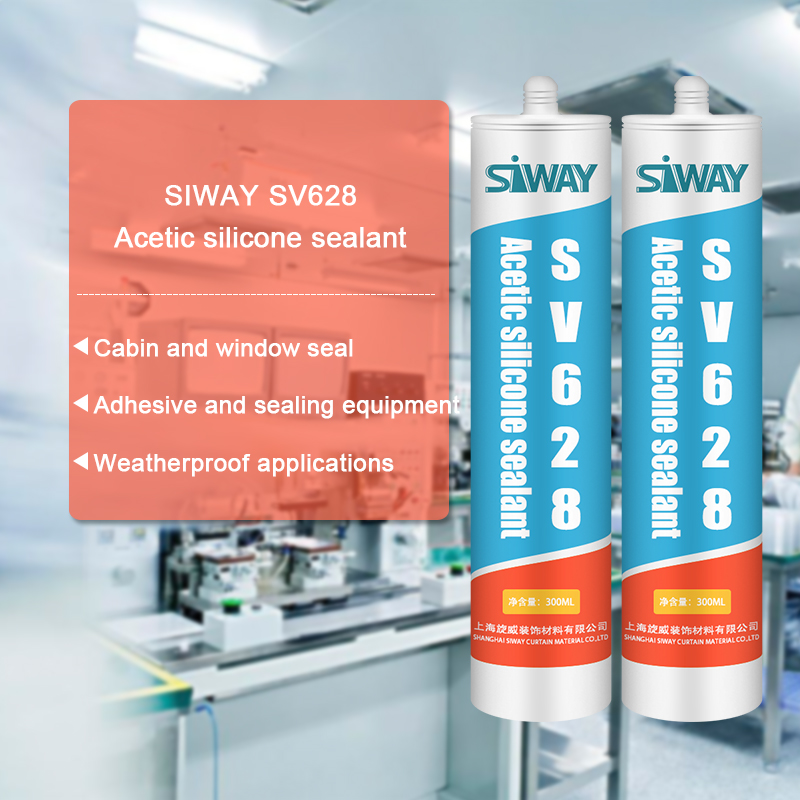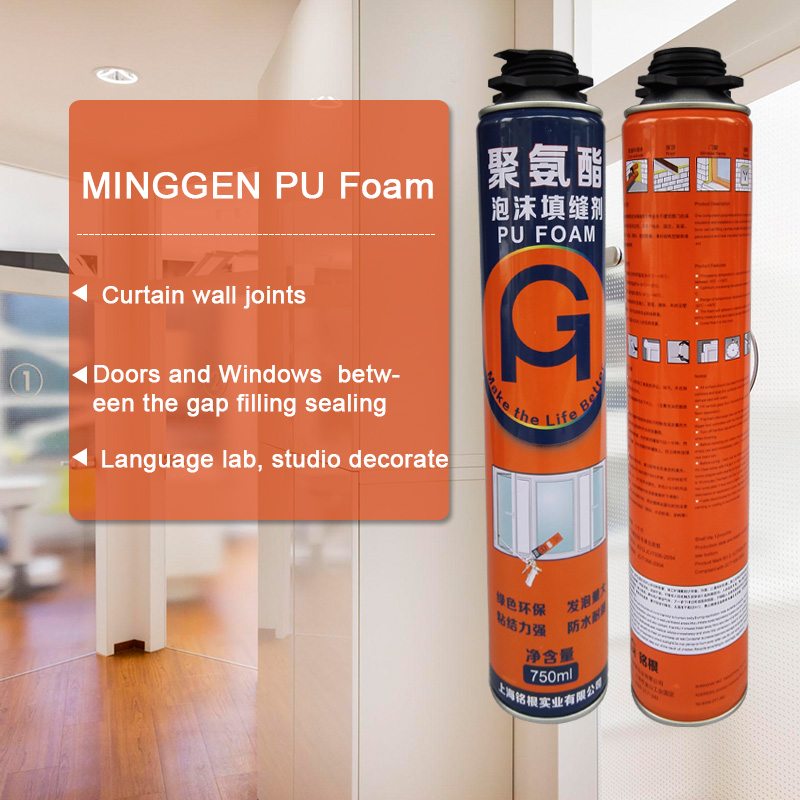Big discounting SV-628 Acetic Silicone Sealant to Tajikistan Factories
Short Description:
Description It is one- component, moisture curing acetic silicone sealant. It cures fast to form a permanently flexible, waterproof and weather resistant silicone rubber. Where to use Widely used in construction, glass assembling and home decoration.SV-628 has good adhesion to most common building materials e.g. glass, ceramic, tile, wood and fiber glass. Key Features 1. 100% silicone 2. Easy to apply 3. Excellent elasticity 4. Excellent adhesion to most common building materials ...
We keep improving and perfecting our products and service. At the same time, we work actively to do research and development for Big discounting SV-628 Acetic Silicone Sealant to Tajikistan Factories, Contact with us today! We are ready for the market service now!
Description
It is one- component, moisture curing acetic silicone sealant. It cures fast to form a permanently flexible, waterproof and weather resistant silicone rubber.
Where to use
Widely used in construction, glass assembling and home decoration.SV-628 has good adhesion to most common building materials e.g. glass, ceramic, tile, wood and fiber glass.
Key Features
1. 100% silicone
2. Easy to apply
3. Excellent elasticity
4. Excellent adhesion to most common building materials
5. Outstanding weatherproofing capability
6. Fast Curing
Basic Application
1.All kinds of glass curtain wall weatherproof seal
2.For metal (aluminum) curtain wall, enamel curtain wall weatherproof seal
3.Joint sealing of concrete and metal
4.Roof joint seal
Technical data sheet
Technical data sheet for reference,
| Test standard | 1000 | |
| Appearance | ISO 11600 | Have no grain, no agglomerations |
| Extrudability,g/ml | ISO 8394 | 450 |
| Tack Free Time,min | ASTM C 679 | 20 |
| Density,g/cm3 | ISO 1183 | 1.0 |
| Slump,mm | ISO 7390 | 0 |
| Heat weight loss,% | ISO 10563 | 7 |
| Ultimate Tensile Strength,MPa | ISO 8339 | 0.4 |
| Ultimate Elongation,% | ISO 8339 | 150 |
| Ultimate Shear Strength, MPa | ISO 4587 | N/A |
Certification
JC/T881-2001 20LM; GB/T14683-2003 20LM.
Color
clear, black, silvery gray, white, brown
Package
300ml in cartridge * 24 per box, 590ml in sausage *20 per box
Shelf life
12 months
Note
If you want the TDS or MSDS or other details, please contact with our sales person.
Casting Your Clay Ears in Silicone, is the step where you take the ears your sculpted in clay and you make a silicone mold of them. If you followed the steps in video “Part 4″ then your mold will have all the over flow areas needed to make beautiful ears once this (Part 5) is finished.
To simplify the materials here is a list of what you need to make silicone elf ears.
THE PLASTER used in this process is called Hydrocal B11 White. This plaster is best because you can scrape it and clean it easier than Ultracal 30 plaster. Which either one is good it’s just I prefer Hydrocal.
THE SILICONE used in the molding process can be either a Tin Cure silicone or a platinum silicone. Platinum is preferred by most effects artist. lately I have been using Dragon Skin 30 for the molds instead of the blue (Tin Cure) silicone. I think Platinum silicone is more durable than Tin Cure. I don’t use Tin Cure silicone any more for molding.
For the prosthetic ears use either use PlatSil Gel 10 silicone or Dragon Skin 10. (PlatSil is a little more expensive but I love its feel better than dragon skin.)
For coloring the silicone use the recommend silicone tinting products.
The plastic material I use in the video for making the ear forms is called Repo 1 (Reproduction plastic). You can also use Smooth On Smooth-Cast® 385. I think it might be cheaper and easier to use.
This second video outlines the different types of fiberglass repairs needed to prep a surface before Awlgrip painting and applying a non-skid texture. Small holes, larger holes, chips and voids are covered in detail using West System Epoxy. Next video will cover stress cracks.
Visit our website www.boatworkstoday.com for more information!




